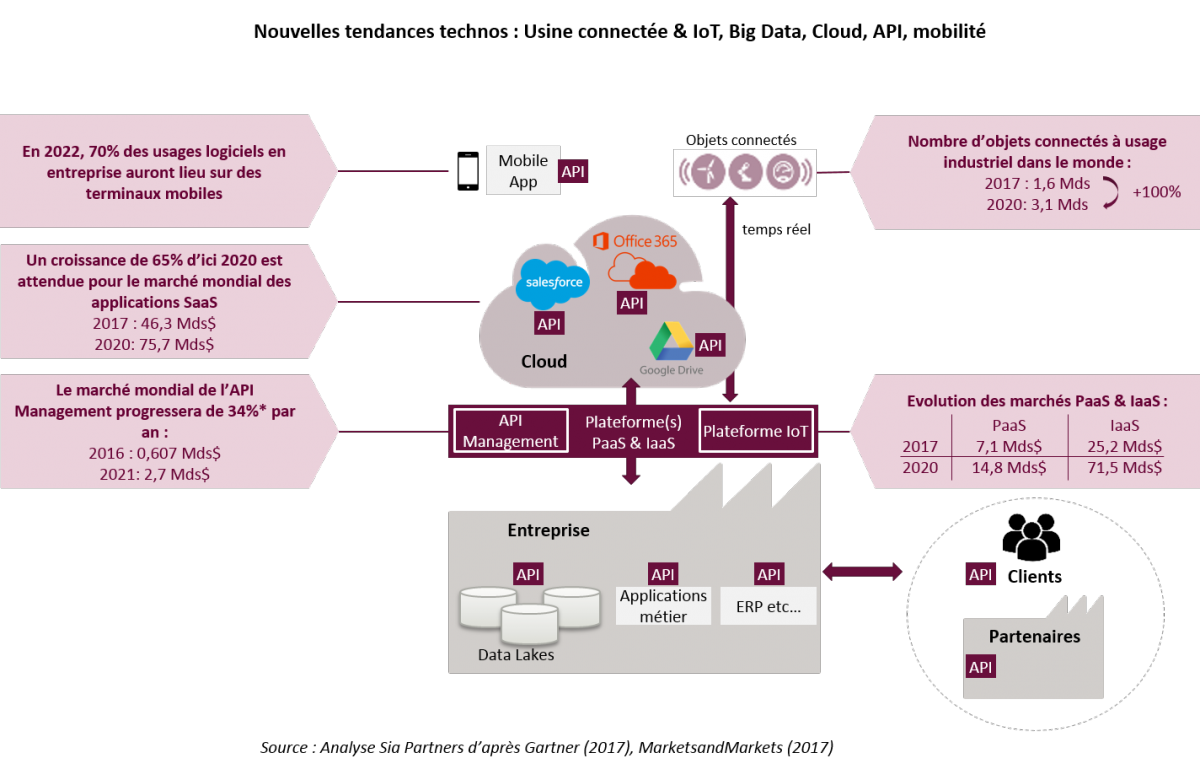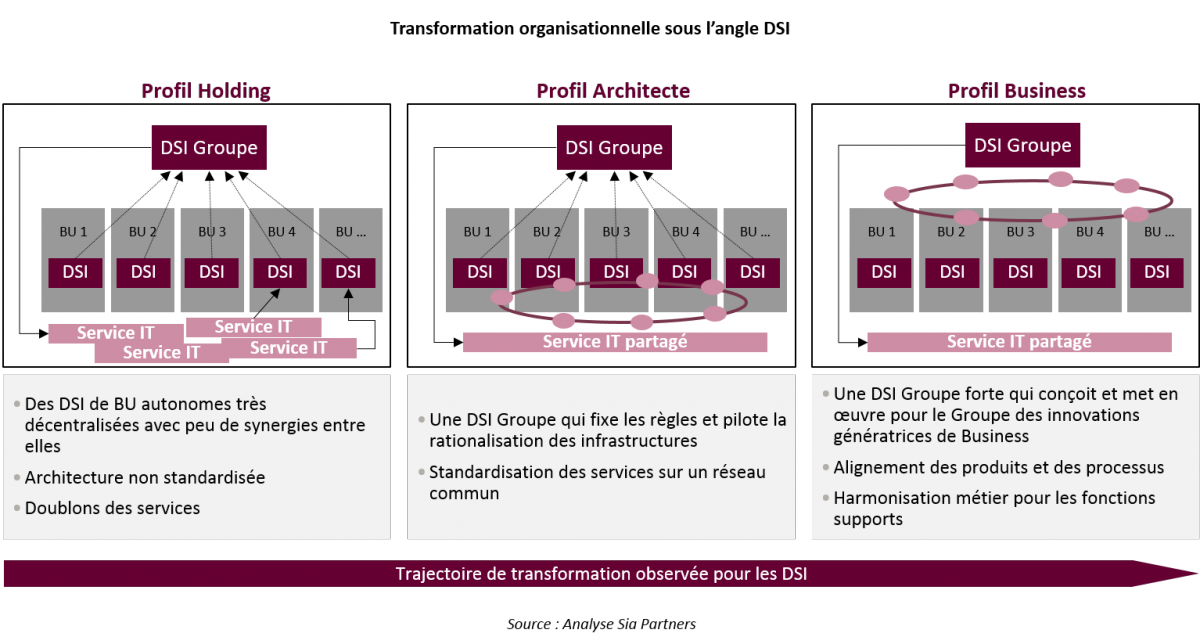Marketing vs. GDPR: Reconciling personal data…
Big Data, Smart Factory, Cloud... the advent of new digital technologies is perceived by companies as a source of competitive advantages, especially in sectors requiring operational asset management such as energy.

The eCAC40 2017 ranking carried out by Les Echos Business and Gilles Babinet ranks three of these companies in the top 10. If digital transformation is essential in these companies, it is due to the many opportunities it offers: improving operational efficiency, optimizing resources, creating new innovative services, increasing agility, opening up to partners and customers...
To successfully negotiate the digital shift, a technological and organizational transformation is necessary for the main companies in the sector such as Total, Engie, EDF, Air Liquide and Veolia. In the background, the themes of cyber security and data confidentiality, the main risks associated with this digitisation, must be carefully managed.
Today, business models focus on data. Annual growth is estimated at around 18% for the Big Data market between 2016 and 2021 and is expected to reach nearly $67 billion[i]. From a variety of sources (social networks, connected objects, commercial transactions, etc.), in structured or unstructured formats, their storage in "Data Lakes" subsequently simplifies their processing and analysis. The expansion of IoT[ii] to serve the industry will increase the amount of unstructured data. Therefore, specific software and IT infrastructures will be necessary to facilitate the technical and business exploitation of these new flows. Data integration platforms, known as "middleware[iii]", are numerous within the various Business Units of large companies. 65% of companies that adopted IoT in 2020 will use an IoT platform for at least one project[iv]. The trend is to centralize flows on a group level platform in order to create synergies between applications while taking advantage of scale and learning effects. Veolia, which has a fleet of 3 million connected objects, has created Hubgrade: a digital platform that collects energy data from buildings and industrial sites in real time, in order to analyze them and act more efficiently on their energy performance[v].

As such companies have grown, they have carried out multiple mergers, acquisitions and disposals. Their organizations have therefore been made complex and historically segmented into vertical business lines or geographies by forming autonomous Business Units. Today, on the contrary, the digitisation of activities requires a holistic approach to "de-structuring" the organisation.
At the crossroads of technological advances and operational needs are the IT Departments, which are therefore naturally at the heart of the company's digital transformation. New technical trends highlight the need for more cross-functional, horizontal IT governance within the Business Units in order to promote Business-IT synergies. To have new solutions adopted internally and externally, ad hoc entities or entities from company branches that are closely linked to digital subjects such as a Marketing & Customer Service BU are set up. The most popular are data management authorities (Group Chief Data Officer or BU) and shared competence centres. In 2016, ENGIE created its ad hoc structure "ENGIE Digital" bringing together some fifty employees and strategic partners. Its role is twofold:

The mission of CIOs is gradually shifting from the operation of IT infrastructures to the orchestration of the group's data and services. They therefore become multi-skilled because of the need to understand the underlying business aspect in order to develop ever more personalized services to business customers. In parallel, the business teams are involved in the characterization of needs as part of the development of applications in collaboration with the IT teams. This transformation involves major managerial challenges: the adoption of agile and DevOps methods, the recruitment of new skills and the dissemination of digital culture throughout the company. According to Gilles Cochevelou, Chief Digital Officer of the Total Group, digital transformation "is societal, cultural, human, as well as technological".
Organizational changes, the increase in the volume of data exchanged, the introduction of new technologies open to the outside world are all factors that make cyber security and data privacy issues central.
Energy companies are prime targets for cyber attacks. In extreme cases, these can lead to the closure of infrastructure, causing economic and financial disruption or even potentially significant environmental damage[xi]. Among the technologies implemented, the connected sensors represent one of the greatest risks[xii]. An evocative example is the cyber attack that took place at the end of 2015 on Ukrainian power grids, leaving nearly 225,000 households without electricity. The hackers had exploited a security breach on connected industrial objects (SCADA systems[xiii]).
It is therefore imperative to set up tools to protect, in particular, energy infrastructure of primary importance to the country. Thus, security measures are implemented on 4 different scales:
In the end, despite the many challenges to be met (solution performance, change management, governance, security, etc.), the digitalisation of the energy sector has been launched and will lead to the emergence in the short term of new service models for employees, customers and partners. This dynamic can be accelerated even further with the imminent arrival of breakthrough technological innovations such as blockchain, artificial intelligence or 3D printing.
Notes & Sources
[i] Big Data Market worth $401.2 billion by 2028: Market and Markets
[ii] IoT : Internet of Things
[iii] Plateforme middleware : logiciel permettant à différentes applications d’échanger et d’interopérer
[v] PlanetLive Agir pour la transformation écologique
[vi] SaaS : Software as a Service
[vii] PaaS : Platform as a Service
[viii] IaaS : Infrastructure as a Service
[x] Application monolithique : décrit une application logiciel indépendante d’autres applications, développée dans un seul programme informatique, et conçue pour fournir à l’utilisateur une suite de services permettant de compléter une fonction particulière.
[xi] Ressource complémentaire : “Cybersecurity in Energy : The Implications of a Security Breach on an Oil & Gas Company”
[xii] Gartner prévoit d’ici 2020 que 25% des cyberattaques identifiées dans les entreprises impliqueront l’IoT
[xiii] SCADA : Supervisory Control And Data Acquisition
[xiv] DMZ : DeMilitarized Zone / WAF : Web Application Firewall
[xv] http://www.cigref.fr/hack-academy-la-campagne-nationale-anti-hacking-du…
If you want to know more about our AI solutions, check out our Heka website